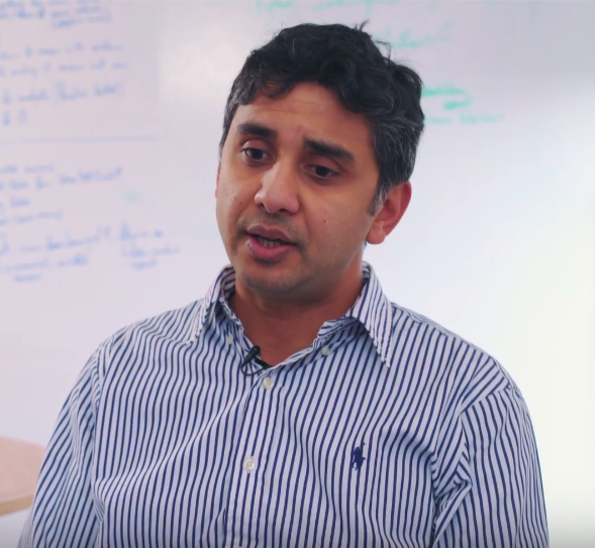Paving the way for the development of responsible AI Dr. Sarvapali Ramchurn

AXA Research Fund recognises Southampton expert’s contribution to responsible artificial intelligence.
Artificial intelligence expert Dr Sarvapali (Gopal) Ramchurn has been awarded a grant from the AXA Research Fund, becoming only the second UK-based academic to ever be supported by the initiative in the field of Responsible Artificial Intelligence.
The AXA ReSearch Fund, the philanthropic initiative of the AXA Group is dedicated to boosting scientific discoveries that contribute to societal progress will provide him with €250,000 to further investigate how AI can be responsible and accountable.
The award recognises the Associate Professor’s innovative contributions to his field, which includes over a decade’s work at the University of Southampton’s renowned Department of Electronics and Computer Science (ECS).
“We are at a critical point in time where key questions are being asked about how AI will change people’s lives for better or worse,” Sarvapali says. “It’s an honour to have been granted this award, and it reflects how the research in our Agents, Interaction and Complexity (AIC) Group is truly world-leading. It is recognition of not just my work but also the current and past colleagues, researchers and students that I’ve been fortunate to work with.”
Sarvapali’s research has largely centred on the development of intelligent software and robotic agents, with a focus on how such agents are designed to work alongside humans and other agents. His next steps will focus on the design of interactions with AI that ensures that humans have reasonable expectations about the behaviour of intelligent agents and supports rather than hinders their daily activities.
“My goal is to develop some of the underpinning technology that will ensure AI remains safe and responsible,” Sarvapali explains. “Some of the targets will be to look at how we can design AI systems to cope with varying degrees of user understanding and how we can design interactions with AI to make sure that control is given to users when it most matters, while the complexity of decision making is dealt with by the AI when the user does not need to be involved. We will also be establishing new methodologies derived from a user-centred approach to the design of AI. A key part of the work will also involve tracking the provenance of AI and human decision making to ensure that systems are accountable.”
Researchers from the University of Southampton have previously worked on the design of responsible AI in a number of projects funded by the Engineering and Physical Sciences Research Council. These include ORCHID, a programme grant that investigated the notion of Human-Agent Collectives, and the A-IOT project which looks at developing the Autonomous Internet of Things.
Discover research projects related to the topic
Finance, Investment & Risk Management
Societal Challenges
Microfinance & Financial Inclusion
Emerging Market
Inequality & Poverty
Joint Research Initiative
China
2021.04.19
Understanding the Financial Lives of Low Income Households in China
Leveraging financial diaries research methodology, this joint initiative aims to provide actionable insights about the financial lives of low-income households... Read more

Xiugen
MO

